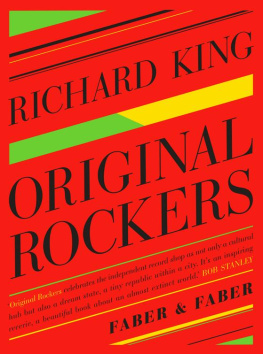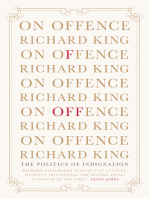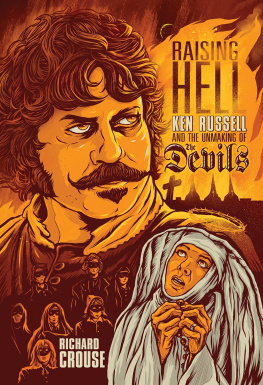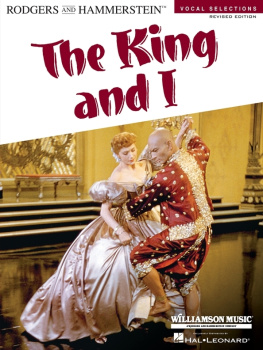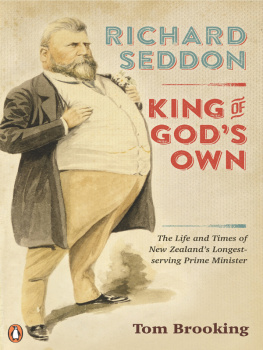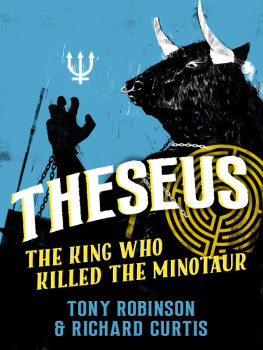Richard King - Original Rockers
Here you can read online Richard King - Original Rockers full text of the book (entire story) in english for free. Download pdf and epub, get meaning, cover and reviews about this ebook. year: 2015, publisher: Faber & Faber, genre: Detective and thriller. Description of the work, (preface) as well as reviews are available. Best literature library LitArk.com created for fans of good reading and offers a wide selection of genres:
Romance novel
Science fiction
Adventure
Detective
Science
History
Home and family
Prose
Art
Politics
Computer
Non-fiction
Religion
Business
Children
Humor
Choose a favorite category and find really read worthwhile books. Enjoy immersion in the world of imagination, feel the emotions of the characters or learn something new for yourself, make an fascinating discovery.
- Book:Original Rockers
- Author:
- Publisher:Faber & Faber
- Genre:
- Year:2015
- Rating:5 / 5
- Favourites:Add to favourites
- Your mark:
- 100
- 1
- 2
- 3
- 4
- 5
Original Rockers: summary, description and annotation
We offer to read an annotation, description, summary or preface (depends on what the author of the book "Original Rockers" wrote himself). If you haven't found the necessary information about the book — write in the comments, we will try to find it.
Original Rockers — read online for free the complete book (whole text) full work
Below is the text of the book, divided by pages. System saving the place of the last page read, allows you to conveniently read the book "Original Rockers" online for free, without having to search again every time where you left off. Put a bookmark, and you can go to the page where you finished reading at any time.
Font size:
Interval:
Bookmark:

To the memory of my mother,
Joan Hedda King
Some years ago I considered buying a stereo system. Much of my working life had been spent in record companies and I had also occasionally released music on small labels that had been started in order to promote artists that I considered unique, with little concern for commercial interest. I had consequently acquired a fairly large record collection that had also been expanded by forays into selling and trading vinyl. My records were played on fairly basic but adequate hi-fi that consisted of component parts from disparate, usually German or Japanese, manufacturers.
I was aware that various makes of amplifiers, turntables, pre-amps and power supplies had idiosyncratic characteristics and attributes and that in Britain stereo, built by what had often started as small family companies, was highly regarded. The discourse that surrounds hi-fi and the importance that is placed on such matters as the year of manufacture of a certain amp, or whether valves made of fragile glass were more responsive to a frequency than solid-state transistors, had discouraged me from researching further.
Similarly, I had also attempted to evade that rather strained obsession with the grading and provenance of vinyl on which many record collectors set so much store. I certainly struggled to see the necessity of such obsessions and was happy merely to own a release in reasonable condition on vinyl, as that was the format I had committed to during adolescence. Despite the unscrupulousness with which record companies had introduced the CD into the market, a market the format subsequently dominated for many years, I was always able to resist buying them. At my most supercilious I considered my refusal to contaminate my record collection with the unconvincing and digitally compressed binary audio of the compact disc a moral victory.
Although I was aware that my hi-fi system was workmanlike at best, terms such as pre-amp, power amp, power supply and cut switch continually struck me as having little to do with the pleasure of listening to music. I felt that they suggested a triumph of function over content that belonged to the type of person who prioritised the tactile aspects of buttons and the thickness of speaker cable over the beauty and wonder of recorded sound. For many years I had also felt weary of the overbearing preoccupation with technical detail and pristine condition that seemed to be obsessions mutually shared by record collectors and hi-fi enthusiasts.
Eventually I conceded that if I was prepared to gloat over owning several thousand records, another person was justified in pointing out that, by listening to my vinyl on battered, second-rate equipment, I had never truly heard it. All too aware that my prejudices often hinder me, I began investing in a stereo system that would do justice to my acquisitions.
There was another reason for this purchase. As I spent time among my records I was drawn closer to their physical presence; on occasion I felt them looming on their shelves with a latent sense of purpose. I was at times almost able to imagine them watching over me, as if by having been held, inspected and played they were somehow rendered sentient. For the first time in my life I instigated a rather arbitrary filing system and arranged the records accordingly. I had previously allowed my records to organise themselves, mainly because I felt that taken as a random and unordered whole they became more than the sum of their parts. As I began the process of filing I was reminded of how much pleasure records gave as objects, and that holding a few albums or 12" singles under ones arm produced feelings of anticipation and excitement.
I was also once again becoming dextrous at handling vinyl. I could turn a record over and replace it on the deck in one fluid motion and was newly adept at perching an unsleeved record between my third finger and extended thumb in readiness to place it on the turntable. These actions and emotions brought me closer to an environment that I had once inhabited with an unconscious regularity as innate as breathing, but one that might now be lost to me: Revolver Records, a shop in Bristol.
During its lifetime, by the most straightforward definition, Revolver was an independent record shop, one with a reputation for stocking and specialising in iconoclastic and esoteric records rather than more quotidian Top 40 music. It had many other qualities. Its lack of shop front and its long approach corridor, one that was of sufficient length to feel somewhat intimidating, ensured Revolver had a particular atmosphere. The shops institutional expertise lay in certain strands of music, such as reggae, dub, free jazz and psychedelia. As well as managing its reputation, Revolver curated and stocked an anti-canon, a permanent selection of records that it considered to be essential purchases, one that had been assuredly created through years of developing and then responding to its customers tastes.
For these customers Revolver ceased to be merely a shop and became the locus of their musical consciousness.
The shop lacked any formal store front and was entered through an anonymous and peeling doorway which abutted the Triangle, a one-way thoroughfare at the junction of Park Street and Queens Road, two of Bristols most prestigious streets in the citys bath-stone-suburb, Clifton. Although the shop was at street level, the average passer-by was completely unaware of Revolver.
Anyone working in the shop was less interested in selling the weekly deliveries of new releases than in delving through the racks of rare and obscure records that were hidden in a back room away from the publics view. This dusty annexe to the shops main activities contained a lifetimes worth of music that could only be absorbed by listening to one record at a time.
As an undergraduate I visited Revolver almost every day before I finally managed to secure a job there, for around three or so years, during the mid-1990s.
Once the door to Revolver was opened in the morning, the alarm had been turned off and the lights turned on, any other interpretation of everyday life was hard to imagine. Instead time was told by the length it took for a needle to reach the end of the run-out groove, or was dissipated altogether. Days would drift by and we would find ourselves still there behind the counter long into the night, unable to leave, the shop lights off, our listening illuminated by the blue lights of the stereo.
The reasons I had for wanting to dwell once again mentally and emotionally in Revolver were confused and varied. None of us is immune to nostalgia, particularly when the senses are at their most vulnerable. To hear a forgotten or rarely listened-to piece of music and be reminded of the person one once was is to be out of ones depth. The pleasure of listening to records during such moments is as brittle as the dark, hardened fibrosis that covers scar tissue, but by spending hours among my records once more, ordering them, cataloguing them, placing them in new plastic sleeves and above all by playing them, I felt as though I was in some abstract way inhabiting once more the shops tatterdemalion atmosphere.
Certain body movements, such as the particular angle at which one crooks ones head to read the spine of an album, reminded me of being in Revolver. As I hooked my new turntables tone arm out of its cradle on to my forefinger and let the stylus drop on to a record, I felt I had resumed a habit that might again become second nature and I realised that my memories of Revolver had undergone a process of reification.
The physical aspects of listening to a record, such as the sensation of a bass line reverberating in ones chest, or the barely discernible twitch of the fabric housed in the right angles of a speaker cabinet, felt as significant to my understanding and enjoyment of music as the history or biography of those who had created it. This was due entirely to Revolver, the dimensions of its rooms, the character of the people who had populated it and its location in their hearts.
Font size:
Interval:
Bookmark:
Similar books «Original Rockers»
Look at similar books to Original Rockers. We have selected literature similar in name and meaning in the hope of providing readers with more options to find new, interesting, not yet read works.
Discussion, reviews of the book Original Rockers and just readers' own opinions. Leave your comments, write what you think about the work, its meaning or the main characters. Specify what exactly you liked and what you didn't like, and why you think so.

